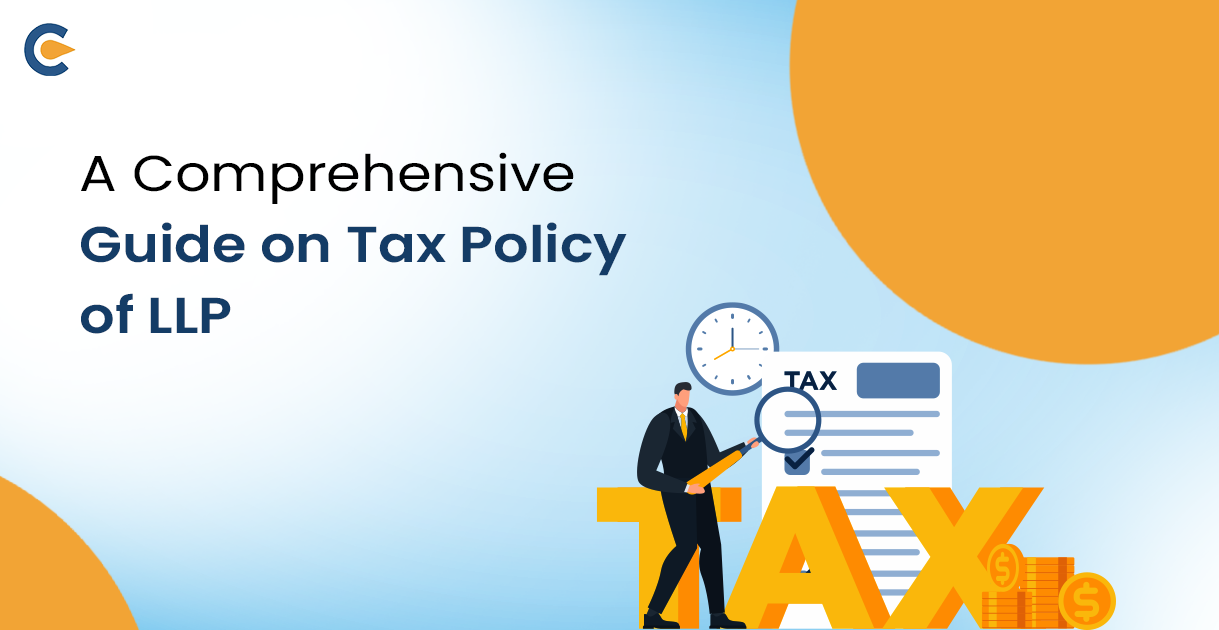Investing in real estate through a Limited Liability Partnership (LLP) is an empowering and relevant option in India’s current real estate landscape. The evolving physical space requirements of businesses, coupled with their growth, create a need for LLPs to invest in real estate. The corporate structure of an LLP, with its unique blend of a partnership’s flexibility and a company’s limited liability, makes it a compelling and flexible choice for many.
It’s important to note that a change of partners does not affect an LLP’s operational abilities or legal standing to invest in property or enter into transactions. These features make an LLP a reliable and secure option for real estate investment. Often referred to as a hybrid between a company and a partnership, the LLP structure combines the best of both worlds, offering a clear and thorough path for businesses considering property ownership.
Shedding Light on LLP
A limited liability partnership (LLP) is a business structure with flexible legal and tax features. Every partner in an LLP has a limited personal liability for the partnership’s obligations or claims.
Partners in an LLP can gain economies of scale and lessen their liability for the deeds of other partners through business cooperation. However, it’s crucial to remember that an LLP must review country and state laws and seek legal consultation before making any decisions. This emphasis on legal guidance ensures that partners are well-informed and prepared for their investment journey.
Merits of LLPs that One Must Know
- Limited Liability Protection: An LLP’s main benefit is providing limited liability protection to its partners. This safeguards the partners against financial risks by individually protecting them from the business’s debts and liabilities.
- Adaptability and Simplicity of Use: LLPs offer more operational flexibility than corporations and have a less burdensome operational structure. Partners are free to run the company and make decisions without being tied down by excessive red tape.
- Smart Tax Planning: LLPs are exempt from dividend distribution tax and can distribute profits and losses directly to their partners, offering significant tax benefits. Through smart tax planning, they prevent double taxation, which many businesses often face.
- Minimal Compliance Burden: Unlike other business structures, LLPs have a less complicated compliance framework. They save money on compliance expenses and administrative work by not having to perform audits for companies that fall below a specific level.
- Independent Legal Body: An LLP and its partners are considered separate legal entities. In its own right, an LLP can sue or be sued, buy and sell its properties, and enter into contracts independently. Because of this unique feature, stakeholders consider LLPs more favourable.
- Reduced Compliance Requirements: LLPs are subject to less stringent compliance obligations than other business types. They are required to meet fewer statutory filings and are not required to hold annual general meetings. Once LLPs’ turnover and contribution thresholds are met, the administrative costs of managing limited liability partnerships decrease.
Considerations and Challenges
It is essential for LLPs to note the following:
- Financing: Managing finances for property purchases can be challenging, especially for new LLPs. They must keep a solid business plan and financial projections ready to convince lenders to lend them money.
- Regulatory Compliance: LLPs must meet all regulatory compliances, including registration, tax filings, and adherence to the LLP agreement.
- Maintenance and Management: LLPs that own properties should also manage maintenance and adherence to local laws and regulations as part of property ownership.
Legal Framework for LLP Property Ownership
The legalities around LLPs making real estate purchases in India are complex and multidimensional, making understanding all applicable laws and regulations essential. Let us explore the legal framework that defines the restrictions for real estate transactions involving limited liability companies (LLPs). This helps ensure a better understanding of these transactions’ legal nuances and regulations, allowing a seamless and legally compliant property-buying process.
Ensuring the rights, obligations, and compliance with the law of LLPs and their partners requires the framework consisting of the following:
- The LLP Act of 2008: The primary law in India that specifies the creation, organization, and operation of limited liability partnerships is the Limited Liability Partnership Act of 2008. This act describes the steps involved in winding up an LLP, the rights and responsibilities of partners, and the prerequisites for LLP registration.
- Registrar of Companies (ROC): The Ministry of Corporate Affairs’ Registrar of Companies is where LLP registrations are required. State-level ROC authorities supervise the registration and upkeep of LLP records, guaranteeing their compliance with legal requirements.
- Partnership Agreement: LLPs must draft and maintain a partnership agreement, a legally enforceable contract that outlines the roles, obligations, and profit-sharing arrangements among partners. The agreement is the basis for an LLP’s operations.
- Annual Compliance: LLPs must comply with ROC’s requirements for annual compliance, including filing tax reports, financial statements, and yearly returns. Maintaining compliance helps an LLP stay out of trouble with the law and maintain its good standing.
- Tax Laws: The Income Tax Act of 1961 applies to LLPs and imposes taxes on them. LLPs must pay all relevant taxes and file income tax returns according to the applicable tax laws.
- Audit and Accounting Standards: LLPs must adhere to the accounting and auditing guidelines set forth by the Ministry of Corporate Affairs and the Institute of Chartered Accountants of India (ICAI). LLPs must get their financial statements audited at regular intervals.
- Foreign Exchange Management Act (FEMA): If an LLP participates in foreign transactions or investments, it must abide by FEMA requirements concerning foreign exchange and overseas investments.
- Intellectual Property rules: LLPs that deal with intellectual property rights must abide by intellectual property rules to preserve their trademarks and copyrights.
- Labour Laws: If an LLP employs people, it must abide by labour regulations governing employment, employee benefits, and workplace security.
- Contractual Obligations: LLPs must uphold contract law principles while honouring contractual commitments with partners, suppliers, and clients.
Permitted Property Types
Limited Liability Partnerships (LLPs) are not eligible to engage in the sale and purchase of all types of properties. They can acquire different kinds of properties, subject to a few requirements. Let’s explore the permissible property types for different LLPs:
- Commercial Property: Limited Liability Companies (LLPs) can buy or rent commercial real estate, including offices, retail establishments, warehouses, and industrial premises. These properties are generally used for investment purposes or company operations.
- Residential Property: Limited liability companies (LLPs) may invest in residential properties such as apartments, homes, and condos. However, residential properties are frequently bought to fulfil investment objectives rather than for partners’ personal use.
- Agricultural Land: LLPs can invest in agricultural land, although their use is limited. Agricultural land can only be used for agricultural purposes. It is worth noting that without the required permits, agricultural land cannot be used for non-agricultural purposes.
- Plots and Vacant Lands: LLPs may purchase plots and vacant lands to develop or sell them for residential or commercial usage. When using such plots and vacant land, the LLPs must comply with local land and zoning laws.
- Industrial Property: Limited Liability Companies (LLPs) can invest in industrial properties, such as manufacturing plants, factories, or industrial land. The LLPs can use industrial lands for their own purposes or lease them to other industrial entities to earn revenues.
- Warehouses and Storage Facilities: LLPs can buy warehouses and storage facilities to meet their logistic requirements or lease them to other businesses.
- Investment Properties: Limited Liability Companies (LLPs) can invest in real estate to earn rental income or for capital growth. These properties may include a combination of residential, commercial, and other types.
Steps for an LLP to Buy Property
LLPs need to follow the below-mentioned steps to buy property:
- Identify the Property: LLPs need thorough research to identify properties that meet the requirements within their permissible limits. They need to check the title and verify ownership before making any further commitments.
- Choosing to Purchase: LLPs must adopt an official resolution authorizing the purchase of the property during the partners’ meeting. This decision should include specifics about the property and the partner or partners authorized to complete the transaction.
- Invest wisely in Law and Finance: LLPs must conduct thorough due diligence regarding laws and finances. They must consult a lawyer to verify the property records and ensure the property is free from liens or court proceedings.
- Execute the Sale Deed: LLPs must create and sign the selling agreement under their name and ensure the sale deed reaches the local sub-registrar’s office for stamping and formal registration.
- Observance and Enrolment: LLPs must pay stamp duty and registration fees to complete the purchase formalities. They must also meet all other compliance and registration requirements.
- Update LLP Agreement: If necessary, LLPs must amend the LLP agreement to account for the new asset and include modifications for partners’ rights and financial contributions.
Conclusion
LLP is a business structure preferred by small business entities that can afford a partner and have little funding. However, a business that aims to grow quickly may opt for a private limited company structure. LLPs have their benefits and limitations, like any other business organization. It may be a suitable choice if you seek a business structure offering more freedom.
LLPs engaging in real estate is not just a possibility in the dynamic and developing Indian real estate industry but a sensible and strategically intelligent path for business expansion. At the end of this blog, we hope we have given you the information, understanding, and self-assurance needed to negotiate the complexities of LLP property purchases in India successfully.
Frequently Asked Questions
Can an LLP buy property in its name?
An LLP (Limited Liability Partnership) can purchase real estate in its name because it is a separate legal entity from its members and is entitled to sale and purchase in its capacity.
What legal paperwork is needed before an LLP can purchase real estate?
The required documents include the Selling Deed, Utility Bills, Property Tax Receipts, and any other records needed to register the property in LLP’s name.
Does an LLP have to pass a resolution to purchase real estate?
It is advisable to approve a resolution at a partners’ meeting permitting the acquisition of the property and naming the partner or partners authorized to carry out the transaction.
Who can sign the property purchase documents on behalf of the LLP?
The property acquisition agreements may be signed on behalf of the LLP by the designated partners, as permitted by the resolution approved in the partners’ meeting.
What is the primary benefit of LLP?
The primary benefit of an LLP firm is limited liability protection. Every partner’s assets are limited to them individually, and none of them is accountable to partners. Each partner is exclusively responsible for their acts, and none shares the responsibility for other partners.
What is the objective of an LLP?
LLP allows the flexibility of a partnership and the advantages of a limited corporation. Even if the partners in an LLP change, the company may still exist. It can also own property under its name.
Can an LLP own assets?
Yes, an LLP can own assets like any other business or corporate body. However, to determine if the assets (if any) belong to the LLP or any individual partner, the official receiver should consult accounting records, accounts, LLP partnership agreement, or any other record for the same.
Are there any limitations on property purchases by LLPs?
No, there are no limitations on property purchases by LLPs. However, regulations may be applicable depending on the kind and location of the property, zoning rules, and general property ownership.
Read our article: Advantages Of Forming An LLP For Small Business











